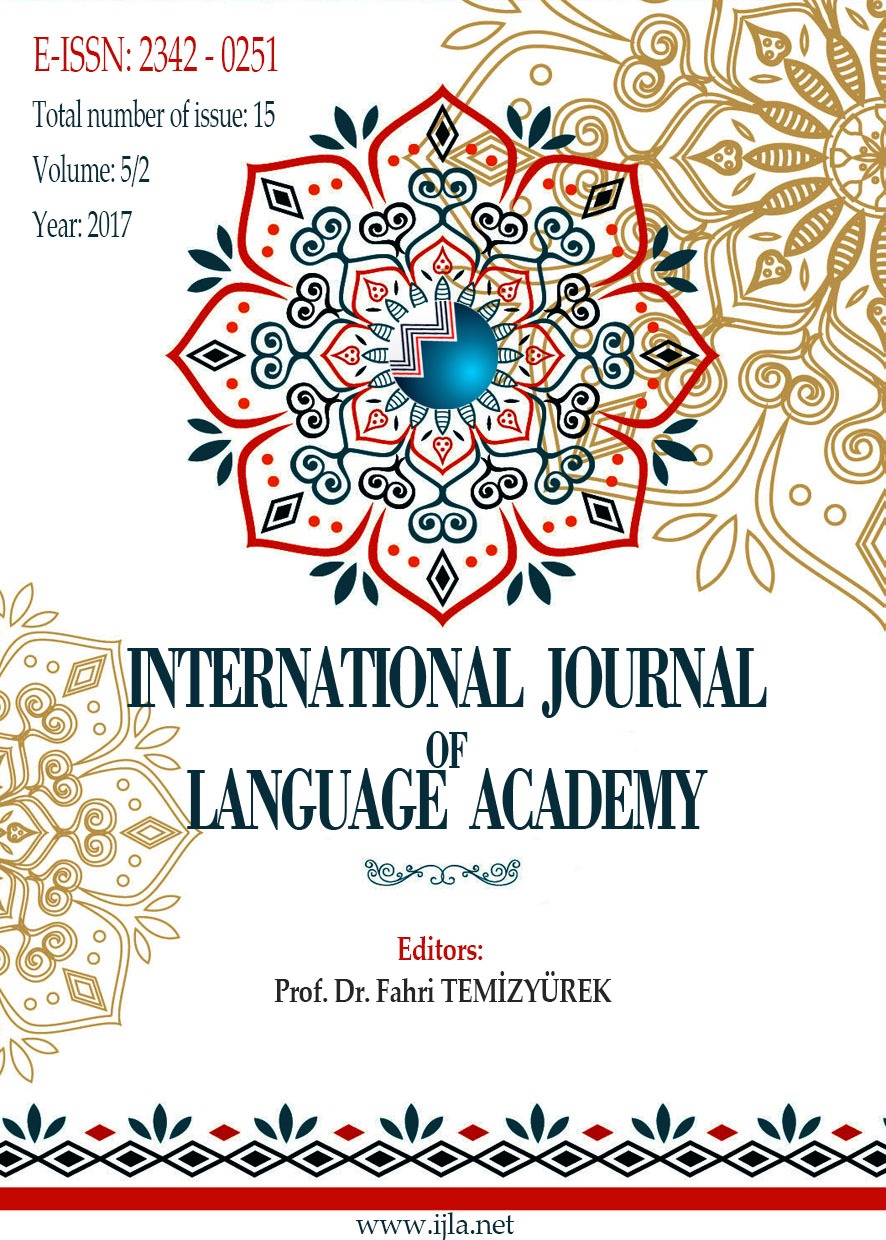ÖZ DÜZENLEMELİ STRATEJİ GELİŞTİRMEYE DAYALI ÖĞRETİM MODELİNİN HİKÂYE YAZMA BECERİLERİNİ GELİŞTİRMEYE ETKİSİ
Author :
Abstract
Bu çalışma, ilkokul 4. sınıf öğrencilerinin hikâye yazma becerilerinin geliştirilmesinde Öz Düzenlemeli Strateji Geliştirme Modeli ’ne dayalı eğitimin etkisini araştırmak; bu kapsamda gerçekleştirilen uygulamaların, öğrencilerin hikâyelerinde yer verdikleri hikâye unsurları ile yazma tutum ve öz-yeterlikleri üzerindeki etkilerini belirlemek amacıyla gerçekleştirilmiştir. Araştırma nicel araştırma yöntemi kapsamında bir deneme modeli olup ön-test – son-test kontrol gruplu yarı deneysel desen olarak tasarlanmıştır. Deney ve kontrol grubu olarak tayin edilmiş iki grubun dâhil olduğu çalışmanın uygulama boyutu 9 hafta sürmüş; verilerin toplanmasında ve değerlendirilmesinde öğrencilerin yazdıkları hikâyeler, Yazma Tutum Ölçeği, Yazma Öz-Yeterlik Ölçeği ile Hikâye Unsurlarını Dereceli Puanlama Anahtarı kullanılmıştır. Verilerin analizinde aritmetik ortalama, bağımlı örneklemler için t-testi, bağımsız örneklemler için t-testi hesaplamalarından yararlanılmıştır. Çalışma ile birlikte öz düzenleme stratejilerine dayalı eğitimin öğrencilerin hikâye unsurlarına yer verme durum ve düzeylerine, yazma tutum ve yazma öz-yeterliklerine olumlu yönde katkılar sağladığı sonuçlarına ulaşılmıştır.
Keywords
Abstract
The aim of this study is to analyse the effect of the instruction based on Self-Regulated Strategy Development Model on improving the story writing skills of the 4th grade students. This study was performed in a way to include the effects of the practices within this context on the elements of the stories that the students wrote and on their attitudes towards writing and on their self-efficacies. The study is an experimental model within the scope of the quantitative research and is a quasi-experimental design with pre-test – post-test control groups. Application of the study, in which two groups were involved in as experimental group and control group, took 9 weeks and the stories written by the students, Writing Attitude Scale, Writing Self-Efficacy Scale and Gradually Scoring Key for the Story Elements were used for collecting and assessing the data. Arithmetic average, t-test for dependant samples, percentage (%) and frequency (f) calculations were used for data analysis. As a result of the study, education based on the self-regulation strategies was found to have positive influences on students’ capacities and levels to utilise the story elements, their attitudes towards writing and their writing self-efficacies.





